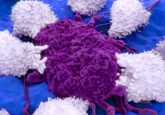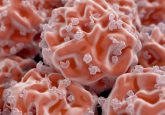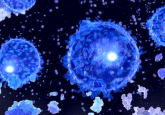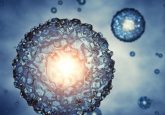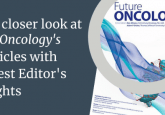At the crossroads: the intersection of the gut microbiome and immuno-oncology
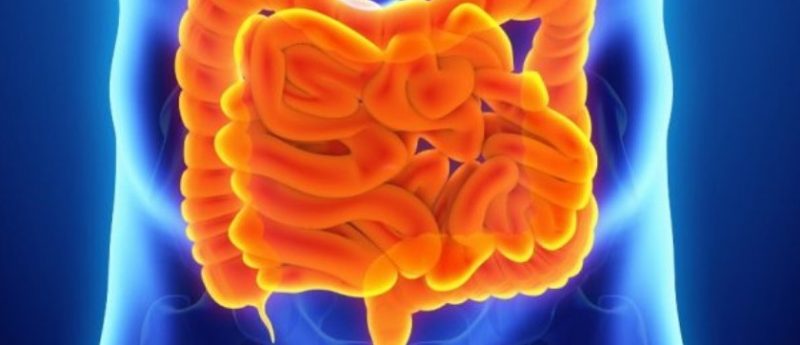
In this poem by Muhammad Bilal Abid from the Medical College of Wisconsin (WI, USA), Abid shares his thoughts on the relationship between immuno-oncology and the gut microbiome.
CTLA-4 has been known to put breaks on the immune system; so has PD-1
Immunotherapy has been the theme for the Noble Prize; thanks to Jim Allison.
Tumors are smarter than ever before; epigenetically, the cancer cells create this immunosuppressive microenvironment
With the advent of targeted and immunotherapy: advanced melanoma, several solid tumors and blood cancers are in remission.
Immunotherapy prolonged survival in relapsed/refractory cancer patients
It overpowers the refractory deficient mismatch repair, the high microsatellite-instability as well as the astronomical mutational burden.
Engineered T-cells are another personalized immunotherapy for treating cancer patients with dismal outcomes
CARs, TILs and BiTEs are specific and harness all aspects of immunity; by virtue of their signaling domains, their novel design and chimerism.
While immunotherapy prolongs lives of refractory cancer patients; their responses remain heterogeneous
Hence there remains a critical need to better understand acquired mutations, hosts’ factors and resistance mechanisms.
Among the host factors, the gut microbiome is known to regulate the immune responses and impact health and disease
Emerging evidence suggests that diversity and certain gut taxa could enhance immunotherapy responses by impacting the immune system.
Several recent studies in the immunotherapy setting have reported positive and reproducible results
The impact of ‘favorable taxa’ and ‘diversity’ had already been demonstrated in patients receiving chemotherapy and allogeneic transplantation.
Metabolomics and cytokine analyses reveal an impact on regulatory and effector T-cells via differential metabolite production by the gut taxa
This works by depleting immunosuppressive regulatory T-cells, enhanced cytokine response and an improved presentation of antigen.
While programmable DNA cutters are being utilized to knockout inhibitory proteins to enhance efficacy of CAR T-cells in tumor mice model
Microbiome manipulation holds at least similar potential in enhancing treatment responses as that of more sophisticated genome-editing.
Although we are aware of certain taxa that impact immunotherapy responses, a rationally-designed conglomerate of live bacteria is yet to be established
It is prudent to delineate the relationship, within the tumor microenvironment, between the gut microbiome and immune cell infiltration.
Further metabolomic profiling may identify microbial metabolites as ‘biomarkers’ of response
Multicenter, randomized trials are needed to study the impact of diet, fecal transplant or a ‘favorable’ live bacterial consortium.
Driven by the era of precision oncology, the intersection of microbiome and immuno-oncology aka the “onco-microbiome” is likely to draw greater interest and funding
This will certainly be a breakthrough in terms of improving the outcomes of cancer patients, the gut microbiome is ripe to live up to its hype and attention.
————————————————————————————————————————————-
Corresponding author:

Muhammad Bilal Abid is a clinician-scientist at the Medical College of Wisconsin in Milwaukee, Wisconsin, USA. Abid graduated from the Aga Khan University School of Medicine (Pakistan) and received clinical training training in Internal Medicine, Hematology/Oncology and Infectious Diseases at reputable institutions across 3 continents. In addition, he also worked in a basic science lab manufacturing CAR T-cells. He is an avid clinical/translational researcher and is currently exploring microbiome’s potential impact on immune-based cancer treatments. Abid also serves on the editorial board of several international journals and is frequently invited to speak at international scientific conferences related to hematology, cell therapy and infectious diseases. He also received the 2018 MCW Professionalism Award of the Year, and the 2018 Outstanding MCW Medical Student Teacher Award.”
Find out more about the gut microbiome and immuno-oncology in this article.
References:
1. Abid MB. Could the Menagerie of the Gut Microbiome Really Cure Cancer? Hope or Hype. J. Immunother. Cancer. 7:92 (2019)
2. Chen DS, Mellman I. Elements of cancer immunity and the cancer-immune set point. Nature. 541 (7637):321–300 (2017).
3. Yamamoto R, Nishikori M, Kitawaki T et al. PD-1–PD-1 ligand interaction contributes to immunosuppressive microenvironment of Hodgkin lymphoma. Blood 111(6):3220–3224 (2008).
4. Topalian SL, Hodi S, Brahmer JR et al. Safety, activity, and immune correlates of anti-PD-1 antibody in cancer. N. Engl. J. Med. 2012;366(26):2443-54.
5. Human Microbiome Project Consortium. Structure, function and diversity of the healthy human microbiome. Nature 486(7402):207–14 (2012).
6. Omenetti S, Pizarro TT. The Treg/Th17 Axis: A Dynamic Balance Regulated by the Gut Microbiome. Front. Immunol.;6:639 (2015).
7. June CH, Sadelain M. Chimeric Antigen Receptor Therapy. N. Engl. J. Med. 379(1):64–73 (2018).
8. Abid MB. The revving up of CARs. Gene Ther. 25(3):162 (2018).
9. Rosenberg SA, Restifo NP. Adoptive cell transfer as personalized immunotherapy for human cancer. Science ;348(6230):62–68 (2015).
10. Kantarjian H, Stein A, Gokbuget N et al. Blinatumomab versus chemotherapy for advanced acute lymphoblastic leukemia. N. Engl. J. Med. 376:836–847 (2017).
11. Ren J, Liu X, Fang C et al. Multiplex genome editing to generate universal car T cells resistant to PD1 inhibition. Clin. Cancer Res.23:2255–2266 (2017).
Conflict of interest: The author declares no conflict of interest and views expressed in this piece are author’s opinion.
Related content
https://www.oncology-central.com/disease-area/gastrointestinal/conference-chair-highlights-world-congress-gastrointestinal-cancer/
https://www.oncology-central.com/disease-area/colorectal/colorectal-cancer-signs-symptoms-advancements/
https://www.oncology-central.com/disease-area/colorectal/colorectal-cancer-biggest-advancements/
